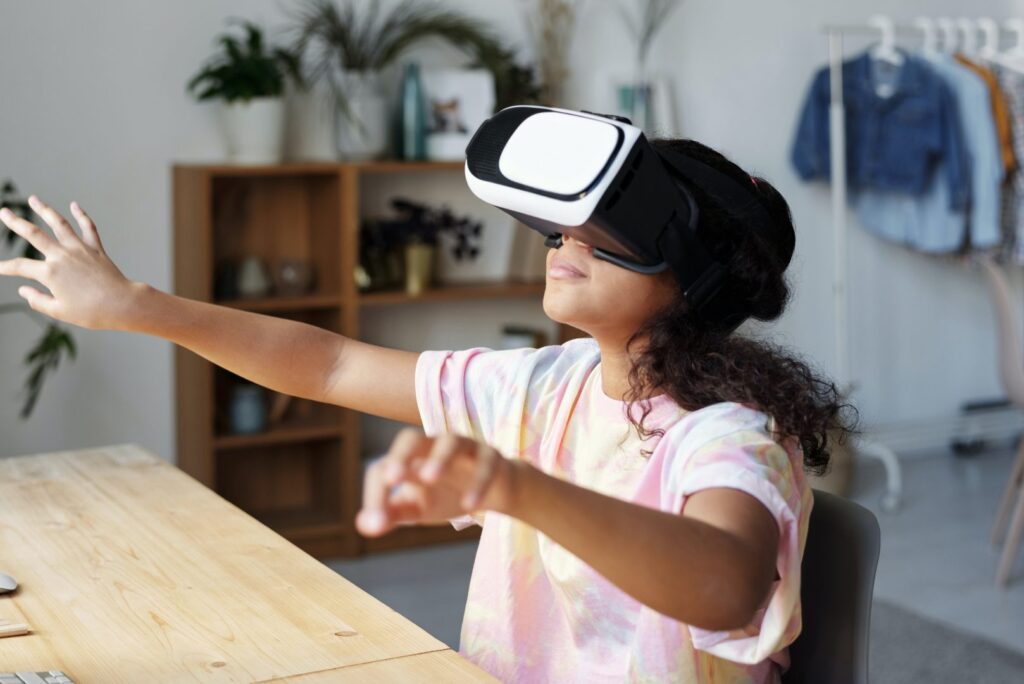IQ (Intelligence Quotient) is a well-used term nowadays. Contrary to popular belief, your IQ isn’t just a measure of your academic skills or profession.
Many people don’t have the opportunity to work their dream job but are super intelligent. IQ is a measure of a person’s ability to develop thinking, reasoning, analytical and problem-solving skills.
It is a common habit among us as parents/caregivers to call our children intelligent. And they are. But children are also overwhelmed by tech in today’s modern world. So, does screen time decrease or increase IQ? Let’s find out!
What is Screen Time and How Does it Affect Children?
Screen time means staring at any screen, usually in a sedentary position. That includes watching TV, playing video games, and using smartphones or computers. Moreover, there are several types of screen time, such as:
- Communication (social media);
- Interactive (research and gaming);
- Passive (watching TV, videos, or reading);
- Creative (using tech for creative arts);
- Educational (learning games and apps);

Children’s educational and learning screen time contributes to their cognitive development. They easily learn through interaction and engagement.
But, excessive screen time harms children’s communicative and social skills and lowers their focus, concentration, thinking, and problem-solving skills.
Does Excessive Screen Time Lead to a Decrease in IQ?
There are constant debates about the link between children’s excessive screen time and its influence on decreasing their IQ.
Some research shows that excessive screen time linked to watching TV, videos, or social media lowers children’s brain performance.
But other studies show that gaming increases children’s IQ. By analyzing these stats, we can conclude that the effect of technology on IQ depends on the content our children are exposed to.
Are There Other Factors That Contribute to a Child’s IQ?
Genes directly affect children’s IQ development. But, not only genes determine children’s IQ development. Children’s environment also has an enormous impact on their IQ. Family atmosphere, academic performance, and social skills are also factors.
So, we can conclude that children’s IQ shows their capability to process information, interact with others, think logically, and properly express their emotional state.

What Does the Scientific Evidence Say About Screen Time And IQ?
Scientists haven’t agreed on whether screen time affects children’s IQ. There’s still a dilemma. A JAMA Pediatrics study shows that the overuse of tech decreases children’s IQ and other brain abilities.
On the contradictory, a Swedish report states that video games can be beneficial for children’s intelligence development.
Another study states that screen time isn’t a factor that can determine a child’s Intelligence Quotient. All things considered, it’s still smart to limit children’s screen time because it can lead to other health consequences.
Is All Screen Time Equally Detrimental to IQ?
Children’s passive screen time affects their physical and cognitive abilities. They only watch the content and don’t even bother to understand.
Their brains develop low analytical and thinking abilities, which decreases their Intelligence Quotient.
On the other hand, high-quality educational material and playing video games develop children’s awareness and critical-thinking skills.
Mental occupation, hand-eye coordination, concentration, and focus while watching educational content increases children’s IQ.
The Influence of Screen Time on Specific Cognitive Skills
Children’s screen time influences their cognitive skills both ways, negatively and positively.

· Language and Communication Development
Spending many hours on screens and exposing themselves to low-quality content hinders children’s communication and language development. They don’t expand and retain their vocabulary and can even develop speech delay problems.
Because of their low communication and language skills, children don’t develop empathy and have difficulties showing and controlling their emotions.
On the other hand, high-quality educational content combined with limited screen time increases children’s well-being and motivates them to communicate.
· Attention Span and Focus
Limited screen time can positively influence children’s attention span and focus. Interactive apps and games usually demand children’s concentration and focus, which leads to increased attention to detail.
But children usually are deconcentrated, tired, and confused, especially if they spend many hours on the screens.
They lose focus and attention because of the repetitive material and tasks that come with low-quality content. Lastly, children can get addicted to tech, lose interest in learning, and focus only on fun screen time usage.

· Problem-Solving and Critical thinking
As we already said, proper screen time with educational content stimulates children’s critical thinking abilities.
But excessive screen time negatively affects children’s problem-solving skills. Children can develop poor sleeping patterns and feel too tired to do their daily tasks.
Who can be interested in thinking and solving problems with four hours of sleep? To compensate, they sleep during the day and waste precious time.
Can Screen Time Have Any Positive Effects on IQ or Cognitive Abilities?
Educational screen time increases children’s abilities to understand, think, memorize, analyze, and evaluate any problem.
Constantly learning and activating their brain develops children’s IQ and cognitive abilities. But that’s only if they watch quality content.
Your children can’t develop their intelligence by wasting their time shooting virtual enemies, playing basketball against virtual teams, or watching others play games.

Summary: What Should Parents Know About Screen Time and IQ?
As mentioned above, we can see that children’s screen time can or can’t impact their IQ (depending on the research). So, what should we conclude?
We now know (if you read the article and didn’t just skip to the summary) that proper screen time with high-quality interactive content positively affects children’s development.
On the other hand, excessive screen time leads to addictive behavior lowering children’s cognitive development and IQ
The point is that children’s Intelligence Quotient is directly linked to their abilities to learn, interact and think.
So, motivate your children to develop a love for learning, reading books, and social interaction. That sounds like an impossible mission, right?
Well, if you are persistent in raising your children properly and constantly help them, you can succeed in anything together.
FAQs: Answering Commonly Asked Questions About Screen Time and IQ
Can screen time enhance children’s IQ?
Some research shows that children who play video games increase their IQ.
Is there an ideal screen time limit for children?
The ideal screen time for children is only two hours for entertainment purposes.
Should parents completely eliminate screen time for young children?
Parents should eliminate screen time for younger children (0-2 years) except for video chats or watching content with parental permission.
What are the long-term effects of excessive screen time on IQ development?
Excessive screen time negatively affects children’s cognitive development, academic performance, and learning abilities, which also decreases their Intelligence Quoitet.
ALSO READ: Can You Stop a Child From Deleting Search History







